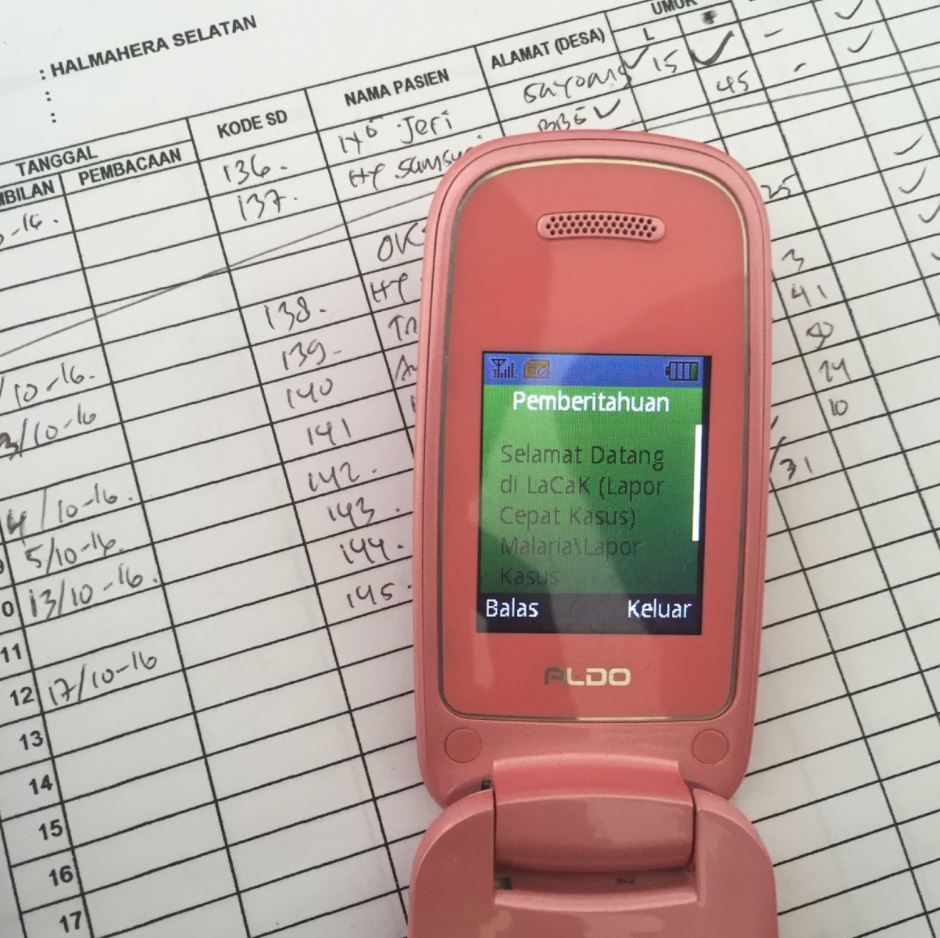How Indonesia cut malaria reporting by 19 days
By GovInsider
A mobile phone-based reporting system in South Halmahera helped to speed up response to malaria cases.

How does a sprawling country like Indonesia, made up of thousands and thousands of islands, combat high rates of malaria? The answer, one regency has found, is SMS. In South Halmahera, a cluster of islands over 2,000 km from Jakarta, malaria is endemic, and is the regency’s top health problem.
As a general rule, front-line malaria case reports are compiled by hand, and the hard copies are delivered to the Malaria Centre. This system is inefficient and ineffective for several reasons: delivery of reports requires a costly journey by boat, which is why they are delivered once a month at best.
But new malaria cases reported a month later do not allow for timely followups, preventive action or even cross-checking of data by the South Halmahera Malaria Centre (SHMC).
Further, these reports do not provide individual data that is essential for tracking of the disease. The SHMC teamed up with Pulse Lab Jakarta (PLJ) to develop a mobile phone-based malaria reporting system, which effectively sped up malaria response.
Users simply text number codes to the Lapor Cepat Kasus Malaria (Malaria Case Rapid Reporting), or LaCaK Malaria, system. Integrated into the system is a simple dashboard for aggregation and visualisation of data on malaria patients and medicine stock.
With this system, SHMC reduced its data collection time by 19 days, making it much more responsive for the treatment of malaria.
To date, SHMC has successfully managed the implementation of LaCaK Malaria on schedule, at nearly all local health centres across the South Halmahera district. With this system, SHMC reduced its data collection time by 19 days, making it much more responsive for the treatment of malaria.
This is the first time that a mobile phone-based system of this sort has been implemented to improve malaria reporting in Indonesia, and the initiative won Best Adaptation at the GovInsider Innovation Awards at Innovation Labs World on 26 September in Singapore.
It is worth noting that prior to collaborating with PLJ, SHMC had attempted to improve the manual reporting system by trying an online option.
However, the South Halmahera regency has an unreliable supply of electricity and a spotty internet network; many villages remain unconnected.
It did not work due to “the necessary cost and effort to maintain the computers, as well as the need to secure reliable internet connection and electricity”, according to a PLJ blog on the matter.
The pen is mightier than the sword, as the saying goes. But in today’s world, it is the humble text that can make a difference.
This article is part of a series that GovInsider is running on the best government innovations in APAC.